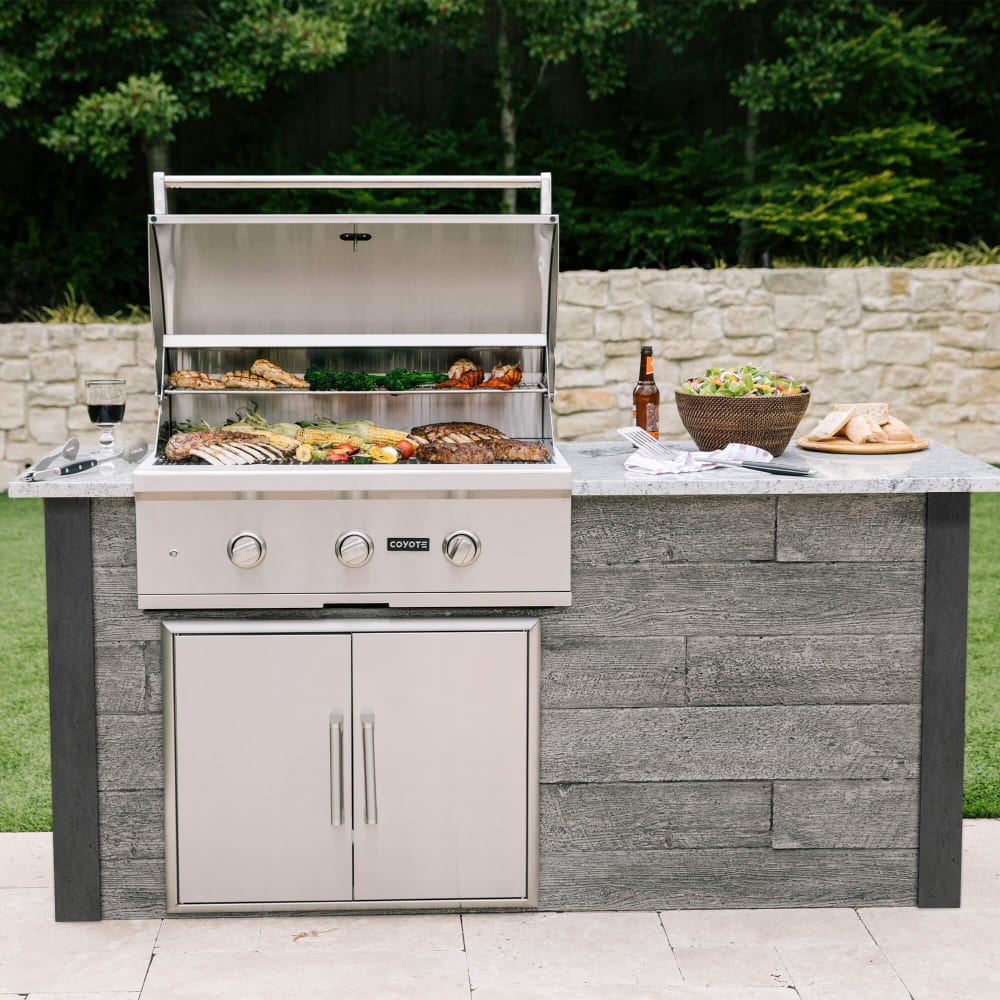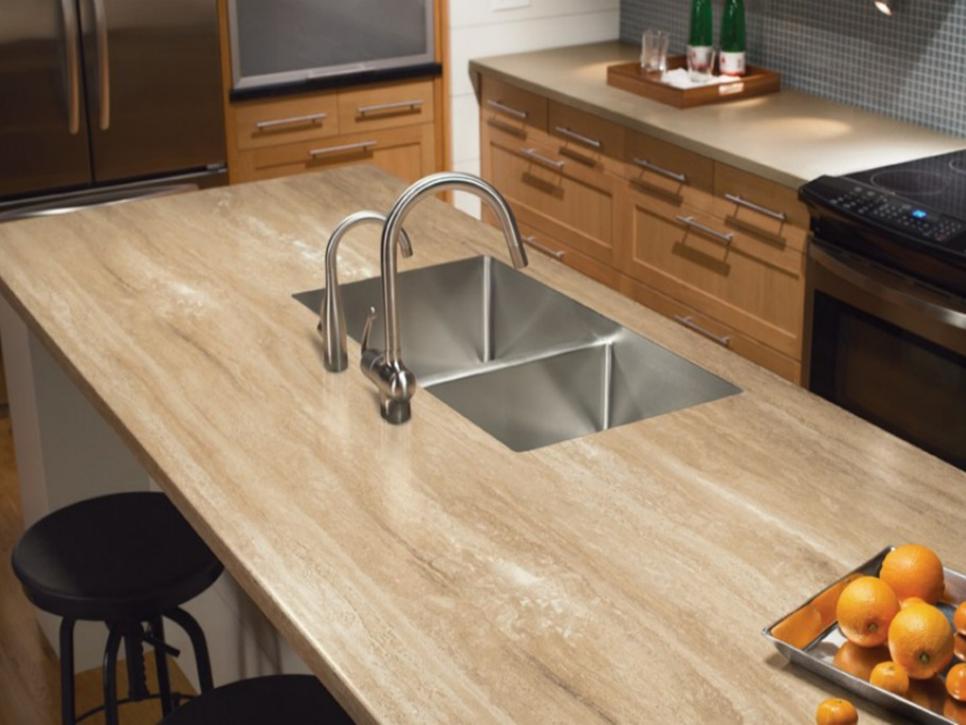Selecting the best finish for a wood kitchen countertop is a crucial decision that impacts both the aesthetics and functionality of the surface. One popular choice for wood countertops is a food-safe mineral oil finish. This type of finish enhances the natural beauty of the wood while providing a protective barrier against moisture and stains. Mineral oil is easy to apply, and it allows the wood to breathe, preventing it from drying out or becoming damaged over time. Regular reapplication may be necessary to maintain its effectiveness, but this ensures a consistently well-protected and nourished wood surface.
Polyurethane is a durable and long-lasting finish option for wood kitchen countertops. It creates a tough, water-resistant layer that protects the wood from stains, spills, and scratches. The application process involves sanding the wood surface and applying multiple coats of polyurethane, allowing each layer to dry completely between applications. While polyurethane provides excellent protection, it can create a plastic-like appearance, which may not appeal to those seeking a more natural or rustic look for their kitchen.

Another popular choice is a natural oil finish, such as tung oil or linseed oil. These oils penetrate the wood, enhancing its natural colors and grain patterns. Tung oil, derived from the tung tree, is known for its water-resistant properties and ability to create a warm, rich finish. Linseed oil, extracted from flax seeds, also provides a natural look while offering good protection against moisture. It’s important to note that oil finishes may require more maintenance, including periodic reapplication, but they contribute to a warm and inviting aesthetic.
Beeswax is a natural and environmentally friendly option for finishing wood kitchen countertops. When combined with mineral oil, it creates a protective, water-resistant layer that enhances the wood’s natural beauty. Beeswax finishes are easy to apply and can be reapplied as needed. However, they may require more frequent maintenance compared to some other finishes, making them a better fit for those who appreciate the additional care involved in preserving their wood countertops.
Shellac is a traditional and versatile wood finish that is derived from the resin secreted by the lac bug. It creates a protective film over the wood surface, offering resistance against moisture and providing a glossy appearance. While shellac is not as durable as some other finishes, it is relatively easy to repair. However, it may not be the best choice for high-traffic kitchens or surfaces that are prone to heavy use and constant exposure to water.
Waterlox is a tung oil-based finish that combines the durability of polyurethane with the natural appearance of an oil finish. It penetrates the wood to provide a protective seal against water, stains, and daily wear and tear. Waterlox finishes are known for their depth and richness, enhancing the wood’s natural colors. The application process involves multiple coats and careful curing periods, resulting in a robust and attractive finish that stands up well to the demands of a kitchen environment.
Epoxy is gaining popularity as a durable and visually striking finish for wood countertops. It creates a thick, glossy coating that not only protects the wood but also adds a contemporary and high-end aesthetic. Epoxy finishes are highly resistant to water, heat, and stains, making them a suitable choice for kitchens with heavy use. The application process, involving careful mixing and pouring, requires attention to detail to achieve a smooth and even surface. Epoxy finishes can be customized with color additives, allowing for unique and creative design possibilities.

Varnish is a clear wood finish that offers excellent protection against moisture, stains, and scratches. It creates a hard, glossy surface that enhances the wood’s natural beauty. Varnish is relatively easy to apply, and it provides a durable finish that can withstand daily use in the kitchen. However, it’s important to note that some varnishes may yellow over time, impacting the appearance of light-colored wood. Choosing a high-quality, UV-resistant varnish can mitigate this issue and maintain the wood’s original color.
Hardwax oil finishes, such as those based on natural waxes and oils like carnauba and beeswax, are becoming increasingly popular for wood countertops. These finishes provide a durable and water-resistant surface while allowing the wood to breathe. They enhance the natural appearance of the wood, creating a matte finish that is both modern and easy to maintain. Hardwax oil finishes are applied in multiple coats, with each layer contributing to the overall protection and aesthetics of the wood.
While lacquer is commonly associated with furniture, it can also be a suitable finish for wood kitchen countertops. It forms a hard, durable surface that is resistant to moisture and stains. Lacquer finishes dry quickly, allowing for efficient application, and they contribute to a smooth and glossy appearance. However, it’s essential to choose a high-quality lacquer that is specifically designed for kitchen surfaces to ensure optimal durability and performance.
When considering the best finish for a wood kitchen countertop, it’s crucial to factor in the specific wood species used. Different woods have varying levels of hardness, porosity, and grain patterns, influencing how they interact with different finishes. For example, a dense hardwood like maple may require a different finish compared to a softer wood like pine. Understanding the characteristics of the chosen wood helps in selecting a finish that not only enhances its beauty but also provides adequate protection and longevity.

Maintenance considerations are an integral part of choosing the right finish for wood kitchen countertops. Some finishes, like polyurethane and epoxy, offer robust protection with minimal maintenance requirements. Others, such as oil and wax finishes, may need more regular reapplication to ensure continued effectiveness. It’s essential to weigh the desired level of maintenance against the aesthetic preferences and functional requirements when making a decision.
Environmental considerations play a role in choosing a wood countertop finish. Opting for finishes that are low in volatile organic compounds (VOCs) contributes to a healthier indoor air quality. Water-based finishes, for example, generally have lower VOC levels compared to solvent-based options. Choosing environmentally friendly finishes aligns with sustainable practices and promotes a healthier living environment.
Selecting the best finish for a wood kitchen countertop involves careful consideration of factors such as aesthetics, durability, maintenance, and environmental impact. Whether opting for a classic oil finish, a protective polyurethane, a glossy epoxy, or another option, it’s essential to align the choice with the specific needs and preferences of the homeowner. Each finish has its unique characteristics, and the ideal one will enhance both the visual appeal and functionality of the wood countertop in the context of the kitchen environment.

Wood Countertops Bring Warmth to Any Style Kitchen

Solid wood kitchen countertops – Building & Renovation, Lifestyle
RTA RTACG6WG 6′ Outdoor Kitchen Island (Appliances Not Included) with 13 sq ft Surface

Best Small Open Kitchen Designs that Optimize Both Efficiency and Style

Laminate Kitchen Countertops

Best Bar Top Ideas – Unique Countertop Designs

Related Posts:
- Kitchen Countertops Chicago
- Natural Wood Kitchen Countertops
- Modern Kitchen Granite Countertops
- Replacing Kitchen Countertops With Granite
- Maple Kitchen Cabinets And Granite Countertops
- White Kitchen Countertops Material
- Kitchen Backsplash Ideas For White Cabinets Black Countertops
- Granite Kitchen Countertops Near Me
- Prefab Granite Kitchen Countertops
- Different Countertops In Same Kitchen
